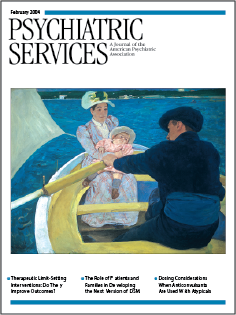Jonathan Michel Metzl has written a history of psychiatry from 1955 to 2002, a history as shaped by and reflected in popular culture. He recounts the transition from a purely psychoanalytic model to the widespread use of medications. He draws on his analyses of pharmaceutical advertisements, popular journalism, and autobiographical accounts of treatment with Prozac (fluoxetine).
In 1955 psychiatry was dominated by psychoanalytic theory and psychoanalysts. Change occurred with empirical diagnostic criteria, but also with Miltown (meprobamate), the first broadly popular psychotropic drug. By late 1956 one in 20 Americans was taking Miltown or another tranquilizer. Pharmacies ran out of the drug before the close of one day's business. They posted signs in their windows announcing, "Out of Miltown" or "More Miltown Tomorrow." Miltown's success was followed by the success of other agents. In the early 1970s, one in ten Americans was taking Valium (diazepam). By 1994 Prozac was the second-best-selling drug in the United States, after Zantac (ranitidine).
Miltown changed public perceptions of psychiatric symptoms and treatment. Anxiety was now seen as a physical condition that could be relieved quickly, without treatment by an individual with analytic training. Hundreds of articles in popular magazines published between 1955 and 1960 discussed the biological basis of psychiatry. Some articles went further. Metzl argues that the popular press often assigned to psychotropics the role of maintaining gender norms—for example, these drugs were described as aides for getting and staying married and for keeping women at home. In the mid-1950s marriage was overwhelmingly normative. In 1956 the marriage rate in the United States was higher than at any other time in the 20th century; the birth rate was at its highest in 1957.
Pharmaceutical advertisements in major professional journals reflected a change in psychiatrists' role and in the role of women. Medications were first advertised as agents that could assist in, not replace, interpersonal psychotherapeutic interactions. Advertisements from the 1950s and 1960s depict white-haired male doctors observing women from behind their desks. In the 1970s and 1980s the doctors in advertisements were replaced by powerful images of capsules. Metzl argues that advertisers capitalized on popular anxiety about the female role and presented their products as cures for social problems. For example, a 1970 Valium advertisement featured a picture of a forlorn woman and the caption "35 and single."
In narratives about Prozac, such as Peter Kramer's Listening to Prozac and Elizabeth Wurtzel's Prozac Nation, women are described as being disenchanted with psychotherapies, seeking in Prozac super energy, decisiveness, and success—popular values today.
Anyone who has been confronted by patients waving pharmaceutical advertisements or patients who think they need medication because they can't get into Harvard will appreciate Prozac on the Couch. The book helps us remain aware that the ways in which we identify illness and functional impairment and treat patients are influenced by patients' expectations and our own values, which are culture bound.

